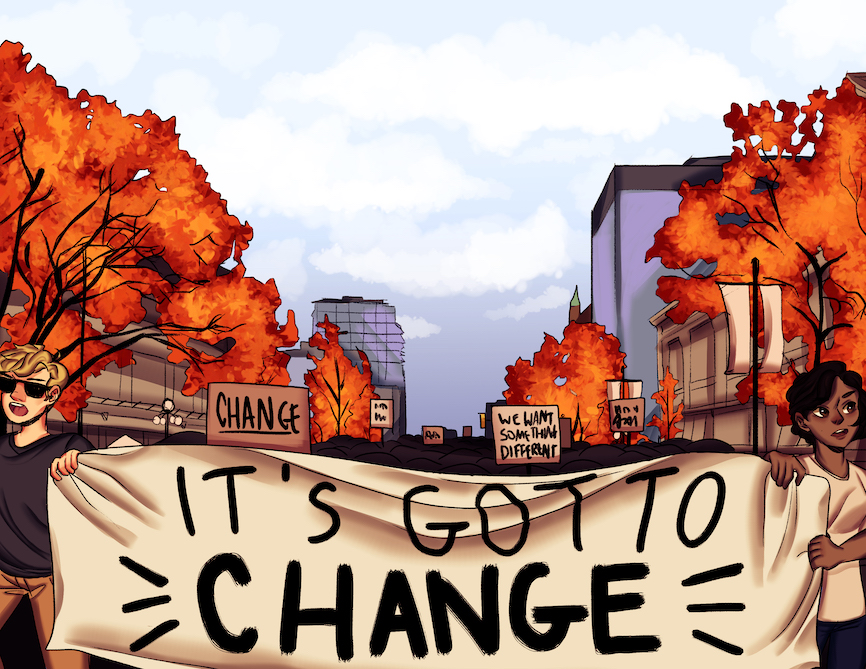Asking nicely just doesn’t work

“Why do protests need to disrupt society?”
“Would a protest not be more effective if it was respectful and quiet?”
“If a movement has something to say, it’s making no friends by inconveniencing people.”
These are the kinds of statements which have often been levelled at recent Wet’suwet’en solidarity demonstrations in Victoria.
From climate change activism to pipeline protests, people seem to question why a protest group would seek to make enemies of the public through actions like blocking bridges at rush hour instead of trying to win them over.
If there is one straight answer to that question, it is this: asking nicely does not work. But the real issue with the mindset that a protest should be as quiet and polite as possible goes deeper than what works and what doesn’t. Of course, it won’t make the necessary waves to say a quiet please and thank you when what’s needed is a loud voice demanding justice. But more importantly, the idea that those who have been victimized by society should bow before the feet of those who benefit from these conditions and ask with a smile for some change is precisely the thinking that created these oppressive conditions in the first place.
An act of protest must directly speak to the act of oppression or violence which precipitated it. One example of this is the act of blocking road access in response to violence against the environment, which mirrors the way life as we know it would cease to function in the face of widespread climate change. Another example is the act of blocking parliament access for government workers, which reflects the way that the Canadian government hinders the political sovereignty of Indigenous nations. Through protesting in a manner that is similar to the injustices which have helped bring that protest into action, activists are able to remind the government and the public what it feels like to have rights, freedoms, and ways of life stripped away. Those who protest are in peril — that is why they are taking a stand — and it is important that they demonstrate the severity of their situation through the disruption of the status quo.
Cultural oppression, and the ways in which those at the top of the social hierarchy seek to remove the rights and visibility of those who have been forced to the bottom, have created an environment in which protest is a necessary act. To assume that those who are giving a voice to the silenced should be quiet in their outrage is to feed the systemic oppression of underprivileged and abused people. That support of oppression bolsters those who benefit from stolen privilege, and weakens those who have been taken advantage of. The only way to support equality is to lift up the people who have traditionally been exploited and assist them in taking back their power by amplifying their voice with your own. The louder the voice, the stronger the message, and all voices must speak as one.
Those who rage against peaceful protest, as many do online, are often those who benefit greatly from the privilege against which activists protest. Due to their desire to maintain power imbalances and continue to benefit from them — whether they are aware of that privilege or not — they are all too ready to speak against the types of disruptive protests that are happening now. If oil runs low, if it is unable to power vehicles or businesses, the privileged cease to retain the money and control necessary to perpetuate their status. Is it any surprise that business owners, those who work in the legislature, or citizens who have never experienced the devastating negative effects of colonization call protests pointless, troublesome, and distracting? They fling out questions such as, “Why should my work day be put on hold for your protest?” But perhaps the question that should be asked is, “Why should your privilege get in the way of our liberation?”
At the end of the day, how could a protest – at least one meant to make real change – ever be anything but disruptive? How can the status quo be challenged with a smile and a bend of the knee? Protests aren’t for making friends, they are for making voices heard. They are for giving visibility to the invisible. Those who disagree with a peaceful protest are not doing so because the protest in question isn’t doing its job. In fact, naysayers are angry because the protest is doing exactly what it is intended to do: amplifying voices, taking up space, and exposing unjust, undeserved privilege.







